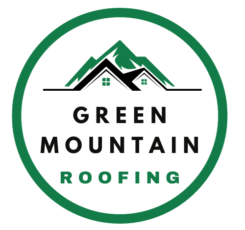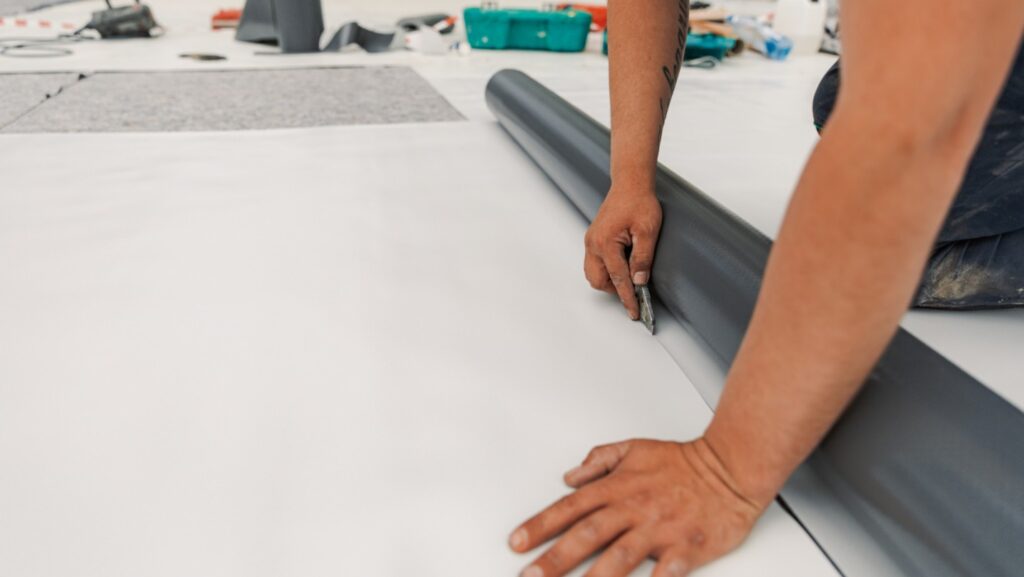If you’re selecting a roofing system for your commercial property in Sonoma County, it’s a choice that shouldn’t be made lightly. It’s essential to choose roofing materials that can withstand the local climate while also offering the best durability and energy efficiency. Two popular options for flat or low-slope roofs are Thermoplastic Polyolefin (TPO) and Polyvinyl Chloride (PVC) roofing membranes.
Before you decide, make sure you have all the facts, pros, and cons for PVC and TPO roofs Sonoma County. Both materials have unique advantages and considerations, making the decision dependent on various factors, including climate suitability, cost, and performance characteristics.
Understanding TPO and PVC Roofing
TPO and PVC are single-ply roofing membranes commonly used in professional flat roofing installation for commercial applications. They are installed in a single layer over the roofing substrate and are known for their durability and energy efficiency.
TPO Roofing
TPO is a blend of polypropylene and ethylene-propylene rubber, reinforced with a polyester mat for added strength and flexibility. It is available in various thicknesses, typically ranging from 45 to 80 mils, and comes in colors like white, gray, and tan. TPO is known for its high reflectivity, which can contribute to energy savings.
PVC Roofing
PVC is composed of polyvinyl chloride and includes plasticizers to enhance flexibility, along with reinforcement from polyester or fiberglass. It has been used in roofing applications for over six decades and is valued for its chemical resistance and durability. PVC membranes are also available in various thicknesses and colors, with white being the most common due to its reflective properties.
Climate Considerations for Sonoma County
Sonoma County experiences a Mediterranean climate characterized by mild, wet winters and warm, dry summers. The region’s unique microclimates can vary, with coastal areas experiencing more fog and moisture, while inland areas encounter higher temperatures. These climatic conditions will influence the performance and longevity of roofing materials.
Performance Comparisons
It’s essential to know some basic facts before hiring a TPO roofing contractor. Let’s compare these two roofing systems in the essential key areas to help determine which is best for your needs:
Durability and Longevity
One of the most important factors that affects how well the roof can withstand weather and wear and tear:
TPO
TPO membranes are designed to resist tears, punctures, and impacts. With proper installation and maintenance, TPO roofs can last between 15 to 25 years.
PVC
PVC roofing has a longer track record, with many installations lasting 20 to 30 years or more. It offers excellent resistance to chemicals, fire, and environmental factors, contributing to its longevity.
Energy Efficiency
Reflectivity and insulation properties play a major role in this factor:
TPO
Known for its high reflectivity, TPO reflects a significant portion of the sun’s rays, reducing heat absorption and potentially lowering cooling costs during hot summers. This characteristic makes it suitable for energy efficiency initiatives.
PVC
PVC membranes also offer reflective properties, though they may not be as inherently reflective as TPO. However, PVC’s performance in this area is still commendable and contributes to energy savings.
Chemical and Fire Resistance
Certain roofing materials are more resistant to chemicals which may be crucial depending on the nature of the building:
TPO
While TPO is durable, it may be more susceptible to degradation when exposed to certain chemicals, oils, or greases, which can be a consideration for buildings like restaurants or industrial facilities.
PVC
PVC excels in chemical and fire resistance, making it ideal for environments where the roof may be exposed to harsh substances or higher temperatures.
Flexibility and Installation
Ease of installation is a key consideration for hiring a professional roofing contractor and affects the installation speed and cost:
TPO
TPO membranes are flexible and can accommodate building movements and thermal expansion without cracking. They are typically installed using heat-welded seams, creating a strong, watertight bond.
PVC
PVC also offers flexibility and is installed using heat-welded seams. However, it is generally more rigid than TPO, which might be an issue in areas with significant temperature fluctuations, like Sonoma County.
Cost
Another essential factor, your budget may necessitate which roofing option is best for you:
TPO
Generally, TPO roofing systems are more cost-effective upfront, making them appealing for budget-conscious projects.
PVC
PVC tends to be more expensive due to its material properties and longer track record.
Which is Better for Sonoma County’s Climate?
Considering Sonoma County’s climate, both TPO and PVC roofing systems can be suitable options, but the choice depends on specific building needs and environmental factors:
TPO Roofing
- Pros – High reflectivity aids in reducing cooling costs during warm summers; flexible and accommodates building movements; generally more affordable.
- Cons – While durable, has less proven longevity.
PVC Roofing
- Pros – Excellent chemical and fire resistance; proven durability.
- Cons – Higher initial cost; can be more rigid, which may affect performance in areas with significant temperature variations.
Given the mild climate of Sonoma County, both TPO and PVC are viable options. However, unless your building is exposed to chemicals or oils, TPO is often the preferable choice. As well as for projects where budget is a primary concern, TPO is a suitable and cost-effective alternative to PVC.
So Which Roofing System is Best for Your Sonoma County Property?
Selecting between TPO and PVC roofing systems for your Sonoma County property involves evaluating factors such as durability, energy efficiency, chemical exposure, and budget. Both materials offer distinct advantages that can align with the specific needs of your building and the local climate. Consider consulting with a professional roofing contractor who can provide further insights tailored to your situation, ensuring a roofing solution that offers longevity and performance.
Get Expert Roofing Installation and More from Green Mountain Roofing
At Green Mountain Roofing, we specialize in installing both TPO and PVC roofing systems, tailored to meet the unique requirements of Sonoma County’s diverse climate zones. Our team of experienced professionals is ready to assess your specific needs and recommend the most suitable roofing solution for your commercial property. Contact us today or give us a call at (707) 395-5435 to schedule a consultation.

